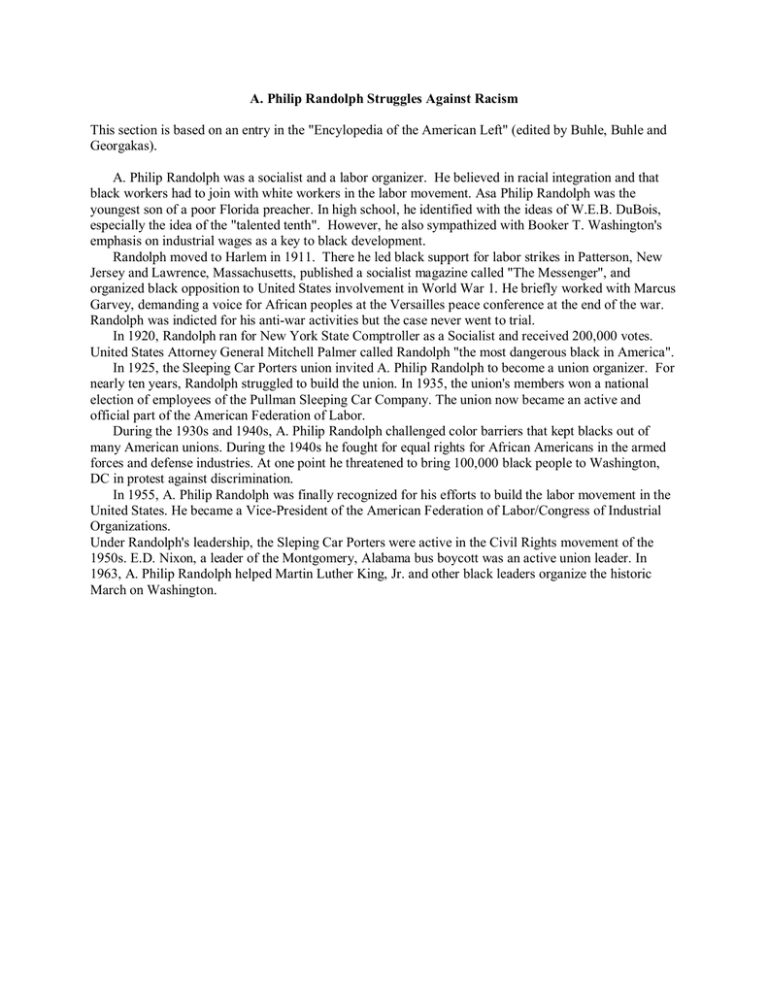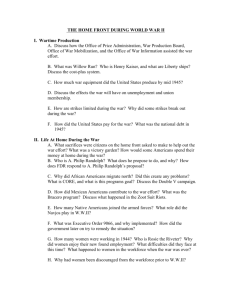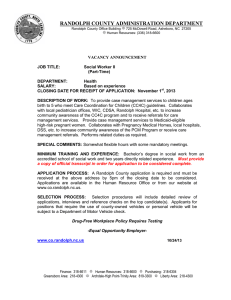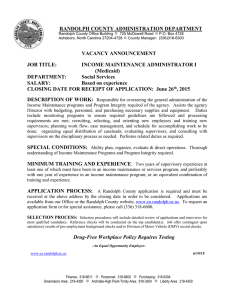A. Philip Randolph Struggles Against Racism
advertisement

A. Philip Randolph Struggles Against Racism This section is based on an entry in the "Encylopedia of the American Left" (edited by Buhle, Buhle and Georgakas). A. Philip Randolph was a socialist and a labor organizer. He believed in racial integration and that black workers had to join with white workers in the labor movement. Asa Philip Randolph was the youngest son of a poor Florida preacher. In high school, he identified with the ideas of W.E.B. DuBois, especially the idea of the "talented tenth". However, he also sympathized with Booker T. Washington's emphasis on industrial wages as a key to black development. Randolph moved to Harlem in 1911. There he led black support for labor strikes in Patterson, New Jersey and Lawrence, Massachusetts, published a socialist magazine called "The Messenger", and organized black opposition to United States involvement in World War 1. He briefly worked with Marcus Garvey, demanding a voice for African peoples at the Versailles peace conference at the end of the war. Randolph was indicted for his anti-war activities but the case never went to trial. In 1920, Randolph ran for New York State Comptroller as a Socialist and received 200,000 votes. United States Attorney General Mitchell Palmer called Randolph "the most dangerous black in America". In 1925, the Sleeping Car Porters union invited A. Philip Randolph to become a union organizer. For nearly ten years, Randolph struggled to build the union. In 1935, the union's members won a national election of employees of the Pullman Sleeping Car Company. The union now became an active and official part of the American Federation of Labor. During the 1930s and 1940s, A. Philip Randolph challenged color barriers that kept blacks out of many American unions. During the 1940s he fought for equal rights for African Americans in the armed forces and defense industries. At one point he threatened to bring 100,000 black people to Washington, DC in protest against discrimination. In 1955, A. Philip Randolph was finally recognized for his efforts to build the labor movement in the United States. He became a Vice-President of the American Federation of Labor/Congress of Industrial Organizations. Under Randolph's leadership, the Sleping Car Porters were active in the Civil Rights movement of the 1950s. E.D. Nixon, a leader of the Montgomery, Alabama bus boycott was an active union leader. In 1963, A. Philip Randolph helped Martin Luther King, Jr. and other black leaders organize the historic March on Washington.


